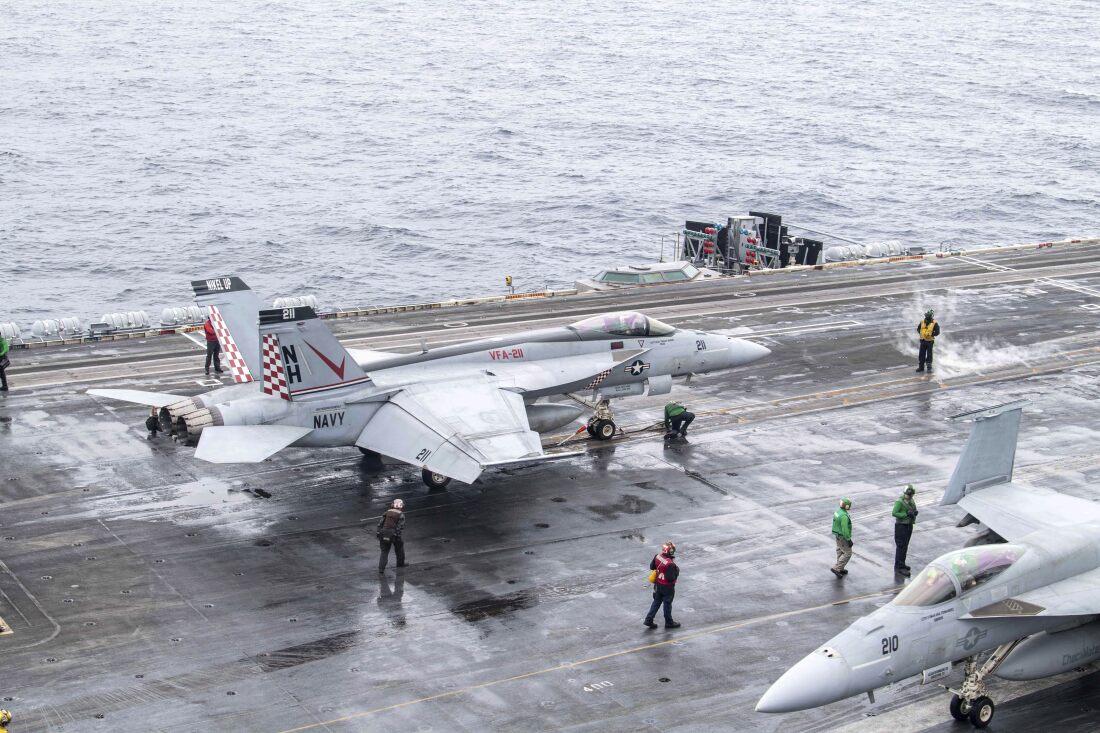What US withdrawal from Western Pacific mean for China? Changing nature
On August 11, US Secretary of Defense Lloyd Austin ordered the deployment of the USS Abraham Lincoln (CVN-72) and its escorts from the West Pacific to the Middle East in light of flaring tensions between Israel and Iran along with pro-Iranian proxy forces.
Although the move is aimed at bolstering the US presence in the Middle East and protecting Israel against the potential massive attack of Iran and its proxy forces, the withdrawal from another strategically important Western Pacific region left a significant security gap as China's influence rose significantly.
The US-China confrontation peaked over the Taiwan Strait and the South China Sea in the last few years. Beijing has long considered the South China Sea as its internal waters, triggering conflict with neighboring Philippines, Vietnam, and Indonesia. As such, several incidents occurred between Chinese and Philippines border guards in the sea while the US issued warnings to Beijing. Nevertheless, the US and China prefer to maintain a lower profile in this dispute, avoiding confrontation.
The US's recent decision to re-deploy to the Middle East came less than two months after Austin directed the Roosevelt, also on a Pacific deployment, to replace the USS Dwight D. Eisenhower Carrier Strike Group in the Red Sea. Indeed, their arrival will add to the recent surge in U.S. forces in the Middle East and further strengthen the American force's posture there. Nonetheless, the US Navy’s absence from the region reinforces China to bolster its influence in the region.
As of now, despite the US Navy redeployment in the Middle East, Iran–Israel demonstrates a certain restraint in terms of continuing escalation in the region. This could be explained by Tehran’s fears of provoking a collective reaction from the US and Western partners like the United Kingdom (UK), France, and Germany amid their official caution to refrain from massive attacks on Israel.

Subsequently, the US ship's partial removal from the Western Pacific region does not represent a particular significance as the balance of naval power in the Western Pacific has been altered in favor of the Chinese Navy. For instance, the U.S. Navy went from having a 76-warship advantage over China in 2005 to having a 39-combatant deficiency in 2023, based on similar ship and submarine comparisons. In this sense, in early 2024, the US deployed five aircraft carriers and their escort ships in the Western Pacific Ocean to cover the disputed East China Sea and South China Sea. Indeed, Chinese navy ships have regularly sailed through the tension-filled seas and intermittently conducted maritime provocations and intimidations to those of other Asian countries, which are among the US treaty allies in the Indo-Pacific region.
China's global ambitions, particularly in the Taiwan Strait and South China Sea, are evident. Hence, since 2019, Beijing has boosted the production of ships, including submarines and aircraft carriers, to quell potential threats in its close vicinity. In 2024, Beijing confirmed that it is testing its third aircraft carrier, the Fujian, which, when fully operational, will be the world’s largest conventional aircraft carrier. Unlike its predecessors, the Fujian is equipped with advanced technologies such as electromagnetic catapults and arresting gear, allowing it to launch a variety of aircraft more efficiently.
Unlike the US and other regional states, Japan nervously watches Beijing’s rising ambitions and naval exercises in its immediate border, particularly following the US retreat from the region. It is unlikely that China will downgrade its naval exercises and efforts to alleviate neighbors' concerns while obtaining bellicose rhetoric against Taiwan and other states. On the other hand, China will further strengthen ties with Russia, particularly between the navies, as the two held joint naval drills in 2024, forcing the U.S. to focus more on protecting its own borders rather than projecting power abroad. This shift could diminish the United States’ ability to counter China’s strategic moves in Asia-Pacific and beyond.








